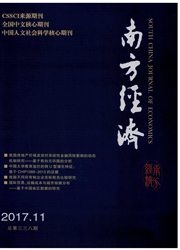

 中文摘要:
中文摘要:
长期且规范的合约安排是降低要素市场交易风险和保障参与者预期收益的重要基础,但农地租约却普遍存在缔约短期化问题。其中,农户的风险预期是影响其农地租约期限的重要因素,而风险预期既可能是源于缔约对象之间的信息不对称,也可能是合约本身的不完全。因此,文章重点考察农户风险规避对其农地租约期限的影响,并从信息不对称和合约不完全两个维度阐述农户农地流转中风险的形成及其影响。实证结果表明,农户对承租方了解越多,尤其是与亲友邻居更可能基于关系信任而形成短期租约,而租约中的违约惩罚条款则能够弱化机会主义行为,有助于激励农户选择长期租约。由此,进一步阐述了目前农户农地流转受到社会关系与市场影响,导致其缔约行为兼有差序格局与商业交往的双重特征。
 英文摘要:
英文摘要:
Long-term and standard contract is an important foundation to alleviate the transaction risk in factor market and safeguard the expected return of the participants,but in reality,the short-term contract accounts for a very big proportion. It is generally considered that the risk expectation of rural households is the key factor to affect the duration of rural land lease contract,and the risk expectation maybe come from the information asymmetry between the lessor and tenant,or the incomplete nature of the contract itself. This paper aims to study the effect of rural households 'risk aversion on the duration of rural land lease contract,and explore the formation mechanism of risk in the process of land transfer from the perspectives of information asymmetry and incomplete contract. The empirical results showthat,the farmers were more likely to choose short-term lease based on trust when they knewthe tenants better,especially with friends and neighbors. Mean while,the penalty clauses could weaken the opportunism behavior,and encourage the farmers to choose long-term lease. On this basis,it pointed out that the current rural land transfer was affected by both social relations and market,which leaded to the dual characteristics of the lease contract: diversity-orderly structure and business communication.
 同期刊论文项目
同期刊论文项目
 同项目期刊论文
同项目期刊论文
 期刊信息
期刊信息
